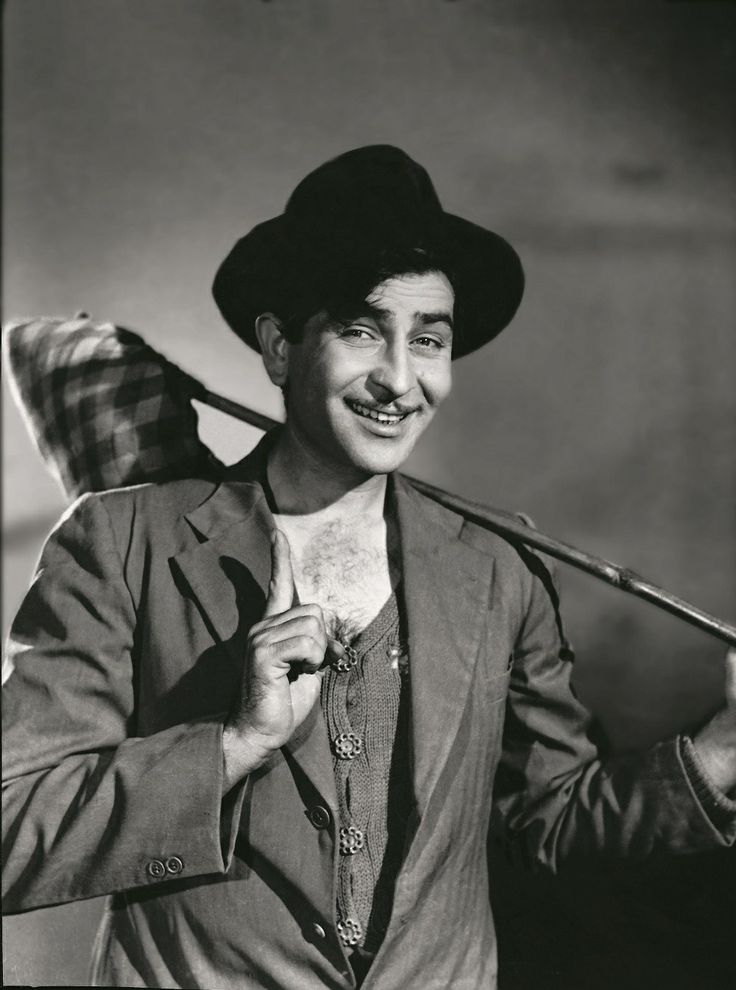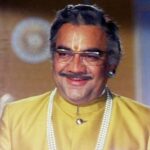Raj Kapoor: The Legendary Showman of Indian Cinema (10 Inspiring Facts)
Raj Kapoor, often referred to as the “Showman of Indian Cinema,” was a true pioneer in the world of Bollywood. His contributions to the film industry are monumental, and his legacy continues to resonate with audiences even today. With a career spanning over five decades, Raj Kapoor was not just an actor and director but a visionary who played an instrumental role in shaping Indian cinema. From introducing innovative filmmaking techniques to creating timeless music, Raj Kapoor’s influence is unforgettable. Let’s explore the incredible journey of this cinematic legend.
Early Life and Career Beginnings
Raj Kapoor was born on December 14, 1924, in Peshawar (now in Pakistan) into a family with a rich theatrical background. His father, Prithviraj Kapoor, was a renowned actor, and Raj was destined to follow in his footsteps. Raj Kapoor’s journey in cinema began at a young age, and he started working in the film industry as an assistant director.
He made his acting debut in 1947 with Neel Kamal, but it was his 1948 film Aag that marked the beginning of his directorial career. Although Aag was not a commercial success, it showcased Raj Kapoor’s determination and vision for Indian cinema. This was just the start of a remarkable journey that would eventually make him one of the most influential filmmakers in the history of Bollywood.
Major Contributions
A Cinematic Visionary: Raj Kapoor’s films are known for their unique storytelling, emotional depth, and social commentary. His directorial ventures, such as Awaara (1951), Shree 420 (1955), and Jis Desh Mein Ganga Behti Hai (1960), broke new ground in the way films were made in India. He was known for blending romance with social themes, often focusing on the struggles of the common man. His characters, such as the “Awaara” and “Shree 420” roles, became symbols of resilience, love, and hope.
Musical Genius: Raj Kapoor’s films were often accompanied by unforgettable music. His collaborations with legendary composers like Shankar Jaikishan produced some of Bollywood’s most iconic songs, such as “Mera Joota Hai Japani,” “Pyaar Hua Ikraar Hua,” and “Awaara Hoon.” These songs not only became popular but also had a cultural impact, remaining etched in the memories of moviegoers for generations.
The RK Studio Legacy: In 1948, Raj Kapoor established RK Studios, a film production company that became a hub for creativity and innovation. The studio produced many successful films that are now considered classics in Indian cinema. Through RK Studios, Raj Kapoor was able to produce, direct, and promote films that not only entertained but also conveyed deep messages about society.
Acting Excellence: In addition to his directing career, Raj Kapoor was also an accomplished actor. He starred in numerous successful films, portraying a range of roles that showcased his versatility as an actor. His performances in films like Barsaat (1949), Awaara (1951), and Chhalia (1960) remain some of his best work and solidified his status as one of Bollywood’s top stars.
Important Facts
- The Showman: Raj Kapoor earned the moniker “The Showman” due to his larger-than-life films, which blended drama, music, and romance with social messages. His films were known for their cinematic grandeur and attention to detail.
- Award-Winning Legacy: Raj Kapoor won numerous awards throughout his career, including the prestigious Padma Bhushan in 1971 and the Dadasaheb Phalke Award in 1987. These accolades recognized his immense contributions to Indian cinema.
- Global Appeal: Raj Kapoor’s films had a significant impact not just in India but internationally. His film Awaara was a massive hit in Russia and several Eastern European countries, making him a beloved figure beyond the Indian subcontinent.
- Cultural Icon: Raj Kapoor’s characters, especially in Awaara and Shree 420, became cultural icons. His portrayal of the “common man” struggling against societal odds resonated with millions, and his films became a reflection of the hopes and dreams of ordinary people.
- Influential Director and Producer: As the head of RK Studios, Raj Kapoor introduced innovative techniques in filmmaking, from camera angles to set designs. He was also a visionary producer, creating films that pushed the boundaries of what was possible in Indian cinema.
- Political and Social Influence: Raj Kapoor often used his films to comment on social and political issues. He was a vocal advocate for the rights of the poor and the downtrodden, using his cinema to raise awareness about issues such as poverty, inequality, and corruption.
- Mentoring Young Talent: Raj Kapoor was known for nurturing and mentoring young talent in the industry. He discovered and worked with actors like Nargis, Shashi Kapoor, and Rajendra Kumar, who went on to have successful careers in Bollywood.
- The Raj Kapoor-Nargis Jodi: The on-screen chemistry between Raj Kapoor and actress Nargis was legendary. Their pairing in films like Awaara and Barsaat remains one of the most iconic duos in Bollywood history.
- Family Legacy: Raj Kapoor’s children—Randhir Kapoor, Rishi Kapoor, and Rajiv Kapoor—followed in his footsteps and became well-known actors in the industry. His family continues to be a major influence in the world of Bollywood cinema.
- Inspiration to Future Generations: Raj Kapoor’s work has inspired countless filmmakers and actors who came after him. Directors like Yash Chopra, Subhash Ghai, and Rajkumar Hirani have often cited Raj Kapoor as one of their biggest influences in shaping their careers.
FAQs
Q: What is Raj Kapoor’s most iconic film?
A: Awaara (1951) is widely regarded as Raj Kapoor’s most iconic film. It was a groundbreaking film that showcased his exceptional directorial skills and became a global sensation.
Q: Did Raj Kapoor win any major awards during his career?
A: Yes, Raj Kapoor won numerous prestigious awards, including the Padma Bhushan in 1971, the Dadasaheb Phalke Award in 1987, and the Filmfare Lifetime Achievement Award.
Q: What made Raj Kapoor’s films stand out?
A: Raj Kapoor’s films were known for their emotional depth, strong social themes, memorable music, and larger-than-life storytelling. He often used his cinema to address societal issues and inspire hope among the masses.
Q: How did Raj Kapoor influence global cinema?
A: Raj Kapoor’s films gained popularity not only in India but also in countries like Russia, Iran, and Eastern Europe. His film Awaara was particularly successful in these regions, earning him international recognition.
Significance and Observance
Raj Kapoor’s contributions to Indian cinema go far beyond just his films. His work has had a profound impact on the way Bollywood films are made and perceived. His ability to weave complex social messages into his films while maintaining commercial appeal is a testament to his genius as a filmmaker. He remains a beloved figure not only in India but also around the world, with his films continuing to inspire new generations of filmmakers and audiences.
In conclusion, Raj Kapoor was not just a filmmaker; he was a visionary who changed the landscape of Indian cinema. His work continues to resonate with people across the globe, and his legacy as the Showman of Indian Cinema will remain unmatched.










